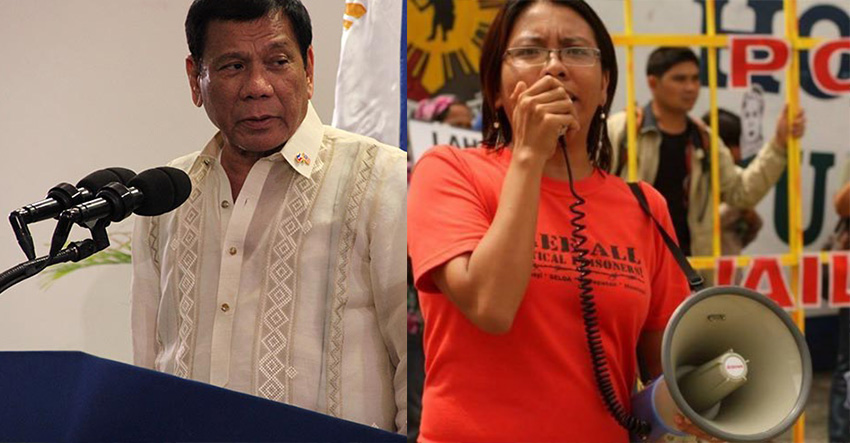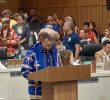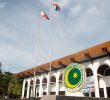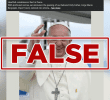
DAVAO CITY, Philippines – Human rights group Karapatan claimed that President Rodrigo Duterte’s warning on suspending the writ of habeas corpus would open the door for more human rights abuses.
“We don’t think that they will be discriminating enough to limit their victims to those suspected of involvement in the drug trade and supposed terroristic acts or extreme lawlessness,” Cristina Palabay, Karapatan secretary general said in a statement Monday.
Palabay said such suspension could be conveniently used by the military and police as justification for more abuses.
“Pres. Duterte is treading on dangerous ground with his plan to suspend the privilege of the writ of habeas corpus,” she said.
Suspension not legally allowed
Bayan Muna Partylist Rep. Carlos Zarate said the suspension is not necessary, nor legally allowed on the basis of lawlessness.
“From the pronouncements of top executive and police officials, the drug campaign is going well, (leveling up, in fact, they said) and peace talks with rebel forces are progressing,” Zarate said.
Section 15 of the 1987 Philippine Constitution stated that “the privilege of the writ of habeas corpus shall not be suspended except in cases of invasion or rebellion, when the public safety requires it.”
Last Friday, Duterte warned the public that he might be forced to lift the said writ if the lawlessness spread, citing the rebellion in Mindanao.
“I don’t want it. This is a warning to them. I do not want it because it is not good,” Duterte said. “But if you force my hand to it, I will declare the suspension of the writ of habeas corpus.”
Karapatan said that in 1971, the suspension of the privilege of the writ of habeas “preceeded the declaration of Martial Law by Marcos in 1972.”
Among those arrested after the writ was suspended, according to Karapatan, were Philippine College of Commerce (PCC) President Dr. Nemesio Prudente, Prof. Teodosio Lansang, trade union leader Rodolfo del Rosario, radio commentator Roger Arienda, and then Kabataang Makabayan National Secretary Reynaldo Rimando.
Karapatan said the writ of habeas corpus is a legal remedy that requires a person deprived of liberty (usually through an arrest or abduction) must be physically produced in court and the custodian must justify or prove that there is legal basis for the act.
“If the legal basis is not established, the victim is immediately set free. If the privilege is suspended, this legal remedy becomes unavailable and the victim of abduction or arrest remains missing or incarcerated,” it said.
Under the Duterte administration, Karapatan documented 20 victims of political killings, 20 of frustrated killings, and 27 of illegal arrest and detention perpetrated by the state forces and paramilitary groups.
At least 15 political prisoners were arrested and are still detained based on trumped up criminal charges, Karapatan said. (davaotoday.com)









